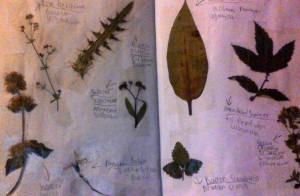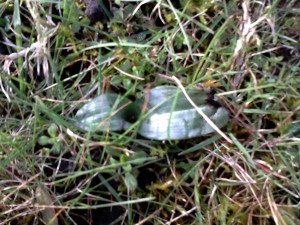Last year Dr M posted botanical selfies here from two young botanists, George Garnett and Ryan Clark, this year sees the posting of a selfie from Reuben Nebbett-Blades who at just twelve years old could easily qualify as the youngest botanist in the country!
And he’s certainly a dedicated field botanist this young chap, into the serious groups of plant groups like sedges and grasses as well as charismatic groups like orchids.
Dr M first came across Reuben at the BSBI meeting in December 2015 where he was, for sure, the youngest botanist present and youngest of the young BSBI trio (Reuben, George and Ryan). There was some significant age contrast with the average BSBI member and an indicator of hope for the future, if BSBI can attract a trio of young botanists in 2015 why not a dozen or more in 2016?
So read on to find what got this young man into botany, and if you know of younger botanists get in touch and we’ll send a BSBI membership pack by return!
- Reuben in the fen
- Dactylorhiza praetermissa
- Busy botanising
I am Reuben Nebbett-Blades, a 12 year old aspiring botanist and nature-lover who is completely obsessed with native wild plants and especially orchids.
I got into botany through a combination of a love of nature, environmental science and an interest in gardening and have been plant-mad for about two years now. Being a keen gardener, it was obvious that I would become interested in the huge and diverse range of plants that grow right here in the UK alongside the birds that were previously my main interest. Soon I started to read wildflower guides until I learnt how to identify these plants and that is how it all started!
I learn botany from myself, I am completely self-taught and I love reading, and can’t imagine a life without books, and so virtually everything I know I have learnt from books and mainly fairly old ones at that. That’s why I am often corrected when I use an out of date plant or family name. Using mainly scientific names, (I’m hopeless at pronouncing them though!) using out of date ones is quite annoying when I find out. I hope to study biology when I leave high school (I just do general science at the moment) and perhaps go on to study botany somewhere if there is an opportunity. I also keep a book full of pressed plant specimens and this really helps with vegetative identification.
My botanical interest / research areas are mainly the genera Potentilla, Dactylorhiza and Carex but also all native plants. Living in the Brecklands of Norfolk, also only a few miles away from the botanically rich Little Ouse Valley fens, I have many unique and special plants on my doorstep and plenty of my favourite types of plants.
In fact I recently found a population of bee orchids just thirty metres from my doorstep! I make frequent trips to my local sites and have found a few species previously unrecorded at one of these. I also grow a range of native plants including bilberries and a variety of sedges as well as some more unusual exotic plants like Cycads and bananas.
I think the biggest challenge facing British botany today is the increasing lack of interest in botany and the lack of young people who want a career in botany – I only know of one other aspiring botanist under 20. I believe this is because botany is considered boring and ‘too specialised to be of use’. Also, other areas of science (like zoology) seem more interesting and exciting, so those with a passion for science are unfortunately more likely to go for one of these as a career.
- Dactylorhiza incarnata (rt) D. praetermissa (lt) in seed
- Schoenus nigricans
- Carex paniculata
- An as yet unidentified sedge
My favourite plant to eat/use/admire is probably ginger. It belongs to my favourite tropical plant family (Zingiberaceae) and has tall elegant pseudostems and long thin leaves. The rhizome is also wonderfully warm and aromatic and strangely I can eat bits of raw ginger and enjoy them! I have grown a ginger plant from a bit of shop-bought rhizome and it lives on my bedroom windowsill, nestled between orchids and my small collection of cacti and other succulents.
My botanical superhero? Well being self-taught, I don’t really have one but I would have to consider Carl Linnaeus as he made life much easier for botanists by developing the binomial nomenclature. The previous system would be very annoying and tedious if it were still used today.
My web presence is on Twitter @RubusCaesius3 I share my botanical experiences and try to help anyone who needs it – although it’s often me that needs the help and I am always learning new things.
- Sanguisorba officinalis
- Geum rivale
- Ficaria verna
- Daphne laureola
Dr M says: Fascinating the different stories we botanists have about how we got hooked on and by plants. Because that’s what it boils down to! Here, Reuben says he is “obsessed” by plants and Dr M, as we know, is wild about plants, but it amounts to the same thing. Somehow, in some mysterious almost mystical way, plants get a hold on us. OK, so as Reuben points out, we need more botanical champions to raise the profile of plants and botany, to ensure that humanity recognises plants as THE lynch pin in the sustainable biosphere. But all the while we can find the likes of Reuben (and George and Ryan) botanising away there is hope!














